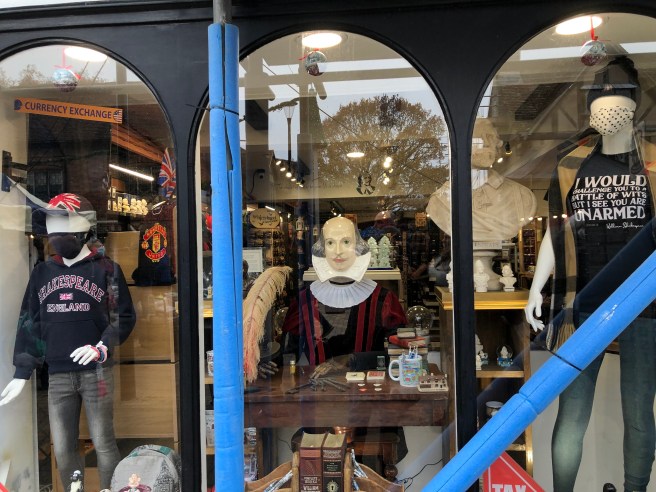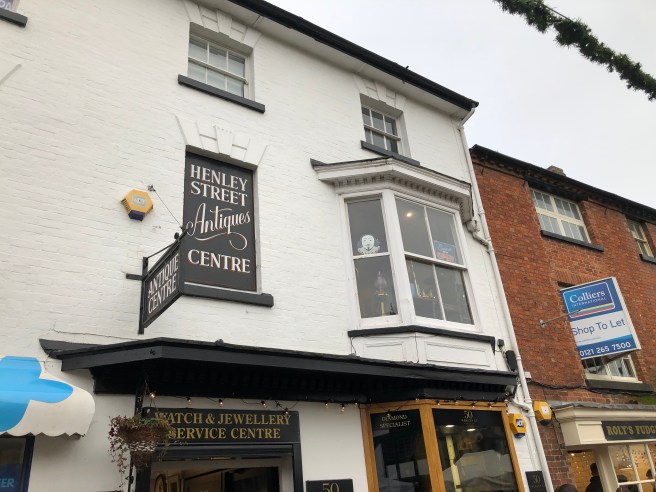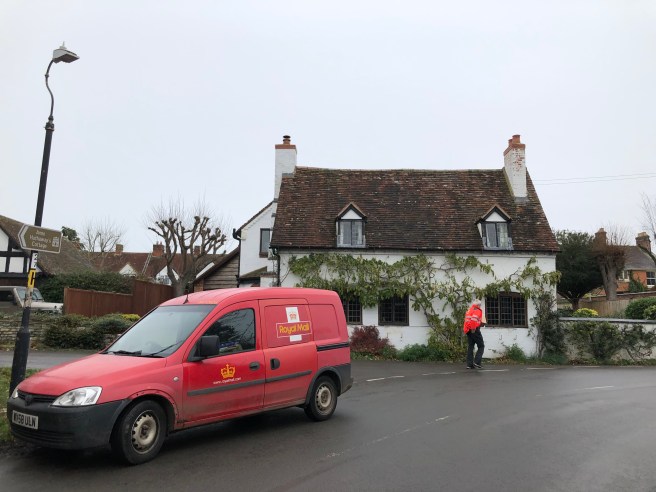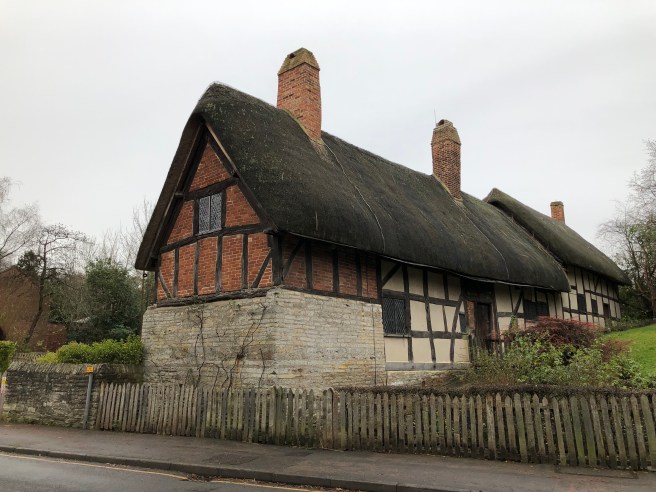One December weekend before Christmas, I decided to visit Stratford-upon-Avon, the hometown of English poet and writer William Shakespeare. I went there with the Manchester International Society organising cultural events and bus trips across the UK for students and members of the university community.
Whilst the bus was carrying us from Northern England to Midlands, I had a very nice chat with a female master student from China who came to Manchester to study intercultural communication. We shared a common interest in Lake poetry and experienced similar problems of using English English, as far as we were native speakers of Russian and Chinese languages.
For the first time, I leant that British English should be called English English from my main supervisor who explained to me how to use it in my thesis properly. Not ‘practice’ but ‘practise’, not ‘garbage’ but ‘rubbish’, not ‘while’ but ‘whilst’, etc.
My acquaintance, a master student, told me that there was a hierarchy of English languages. For example, British English and American English take higher positions within the hierarchy of languages compared to Australian and Canadian variants, whilst Asian and Chinese English-es take the lowest positions because of the sounds and pronunciations that are typical for those groups of languages.
Meanwhile, our bus reached the green fields of Warwickshire and I saw a couple of road signs reading ‘Shakespeare’s town’ and ‘London’. Once the bus dropped us off in Stratford-upon-Avon, we noticed that the car parking was very busy. Crowds of people, including us, were going towards the Victorian Christmas Fayre taking place in the town centre.
The Fayre stalls located along the main streets near the river Avon were full of Christmas gifts, decorations, hand-crafted goods, candles and illuminations. The smell of fried potatoes, mulled wine and other tasty food mixed with the Christmas spirit was in the air. People were waiting in queues to grab something to eat or drink.
And Shakespeare as a linguistic sign looked at the crowded street from different corners and through the windows of pubs, shops and half-timbered houses. One could see his images on hotel signs, hoodies, mugs, copybooks and souvenirs. We followed Henley Street and came across William Shakespeare’s statue that was surrounded by people visiting the Christmas Fayre.
I took several pictures of Shakespeare in the context of the crowd. When I was looking at that picture later, I was surprised by what I captured with the help of my camera by accident. People were looking anywhere but Shakespeare. The most fascinating scene was when a British boy of around 10 years old stuck out his tongue at Shakespeare and kicked his statue.

Throughout several years of working on my PhD in the UK, I was struggling with the language of Shakespeare and thinking of how to expand the linguistic norm by creating a new genre of writing. However, that boy in Stratford-upon-Avon tackled this problem easily. He stuck out his tongue at his mother tongue. And who knows, he will probably become part of a new generation of British intellectuals who will expand the linguistic norm, as far as new knowledge cannot be generated through cultural reproduction.
But if you had asked me, ‘How’s Shakespeare doing?’ I would reply, ‘Shakespeare is doing well. He is being sold very well’. The ticket price for Shakespeare’s Birthplace ranged between 18£ and 20£ for adults. We thought that it was pricey for us and decided to save this money for warm lunch somewhere in the town. It appeared that all other museums in Stratford-upon-Avon were closed for the winter season. That’s why we decided to have a look from the outside at Anne Hathaway’s Cottage where Shakespeare’s wife lived before her marriage.
Anne Hathaway’s Cottage is located on the edge of the town about 20 minutes walk away from Shakespeare’s Birthplace. The navigator showed us the wrong way and that’s how we took a non-touristic route. By following almost empty streets in another part of the town, we saw terraced houses decorated with Christmas wreaths and illuminations. One could see through their windows Christmas trees, decorations made out of paper, toys, candles and other seasonal items.
That part of the town had very rural vibes and looked like a countryside village typical for the Cotswolds area. On the way, we met lazy sheep peacefully standing in meadows, a busy postman delivering mail by the Royal Mail car, and welcoming locals walking with their dogs in the rain and saying hello to us. We passed accurately cultivated allotments, nice countryside fences and an old bridge over the brook and reached a beautiful cottage with a thatched roof. That was the house of Anne Hathaway built more than 500 years ago, according to the Shakespeare’s Birthplace Trust.
After taking several pictures of the cottage, we came back to the town centre, enjoyed warm lunch and spent the rest of the time walking around the Christmas Fayre in the rain. Whilst we were staying in the queue for mulled wine, we had a chat with a woman who came from Wigan, a town of Greater Manchester. She was visiting Stratford-upon-Avon with her daughter of around ten years old. As they told us, they enjoyed the Fayre because of its Christmas spirit even though everything was more expansive there compared to Manchester. It was so nice to meet someone speaking with the northern accent in the crowd and with whom we had something in common, at least from the perspective of the shared locality.
***
Despite the cultural reproduction of the linguistic norm within British society, there are people who elaborate on new aesthetics and pay attention to discursive sensitivity in their texts. This becomes extremely important when we write and talk about unprivileged social groups.
Coming back to the issues of linguistic hierarchy and competition between English languages, I am afraid that Google English like Omicron bits both British and American variants just because non-native English speakers tend to use Google for writing texts in English as lingua franca.

Nota bene. I tend to think that the boy is not disabled. I have only one picture of him and Shakespeare’s statue taken accidentally. However, in the picture of the same situation made by my mate, the boy does not stick his tongue out.













